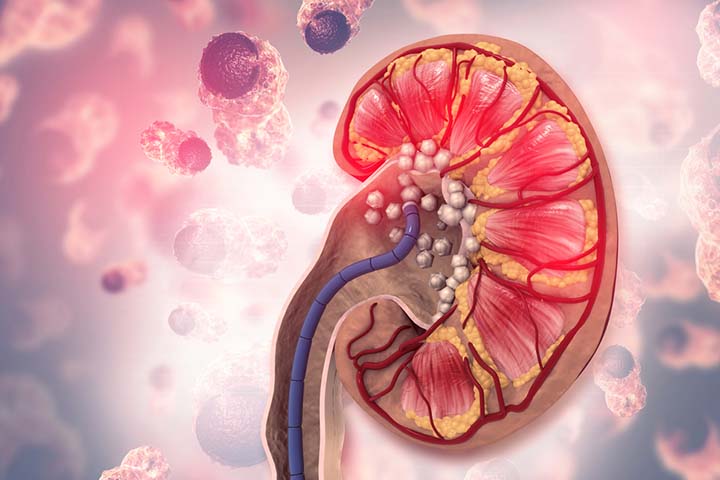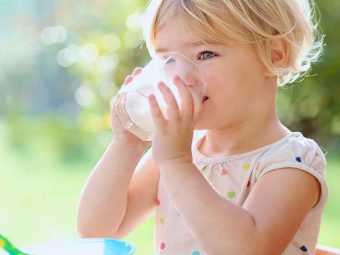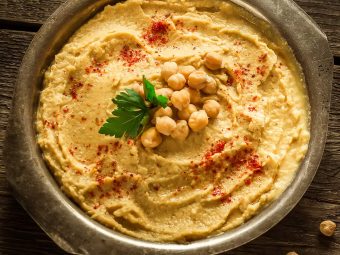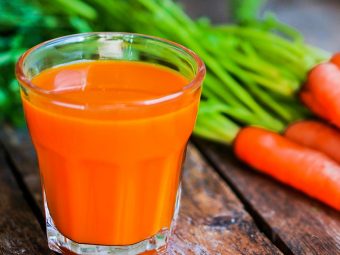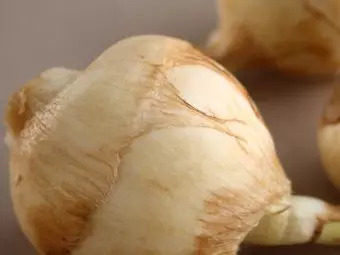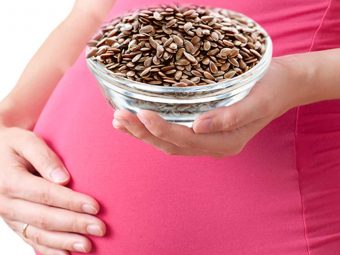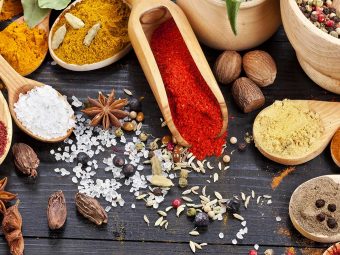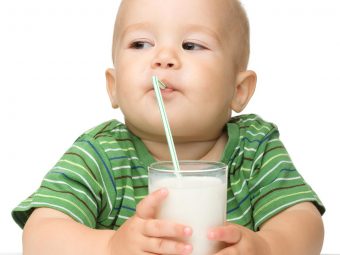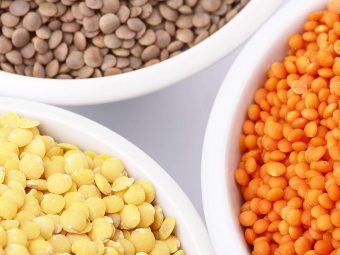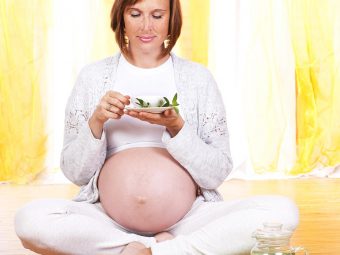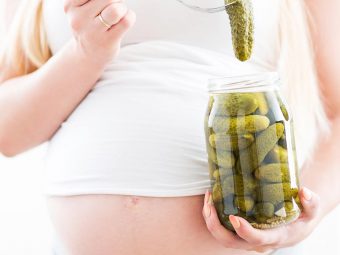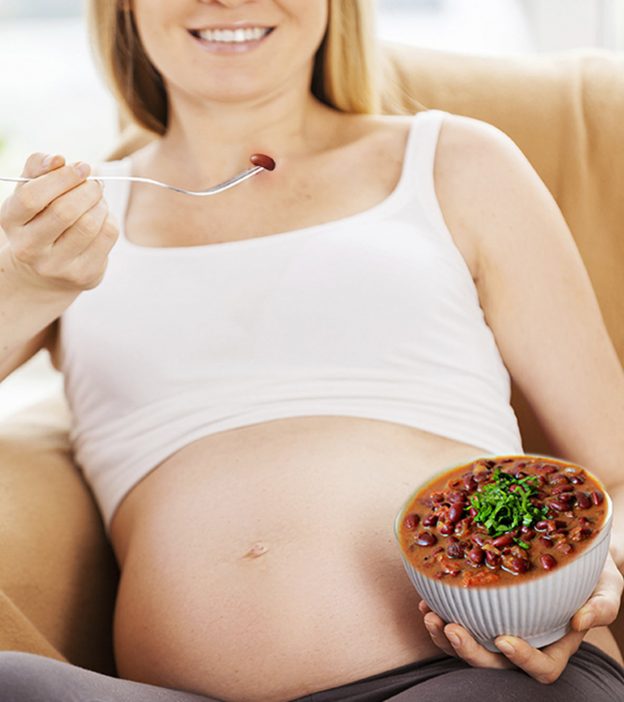
Image: ShutterStock
Most women consume kidney beans during pregnancy, especially towards the second and third trimesters. It is a healthy plant-based protein source rich inantioxidantsiXChemicals, man-made or natural, that may stop or postpone some forms of cell damageand amino acids, besides other important nutrients (1). Several nutrients and compounds can also protect you and your baby from various diseases and health conditions. It is good to include these in your pregnancy diet in moderate amounts. You can prepare them in various ways, based on your preferences.
Read on to know more about these nutritious beans, including their benefits and side effects for pregnant women.
7 Benefits Of Eating Kidney Beans During Pregnancy
Image: Shutterstock
If you are pregnant, make sure that your shopping cart has some packs of dried kidney beans in it, as it is loaded with many health benefits that are useful both for maternal health and fetal development.
- Also nicknamed a “superfood of pregnancy,” this inexpensive bean is a must-have food item in your everyday diet as it is rich in proteins, carbohydrates, and fiber but low in sugar. So if you are looking for foods with a low glycemic index, kidney beans are a good choice.
- You need to consume about 70 grams of protein per day, which can be obtained by eating one and a half cups of kidney beans. (2) (3). It is a good source of protein for vegetarian mothers.
- Kidney beans are also good sources of prenatal vitamins such as vitamin B6, vitamin B9 (folate), vitamin C, and vitamin K.
- They contain various minerals such as calcium, iron, magnesium, phosphorus, potassium, zinc, and manganese, all of which are required in pregnancy.
 Quick tip
Quick tipHere are some of the most common health benefits of eating red kidney beans during pregnancy:
1. Increases Iron Content:
Image: Shutterstock
When you are pregnant, your body needs more iron to build red blood cells of your growing baby (4).
- Kidney beans can help you by replenishing thelevels of hemoglobinin your body (5). This helps eliminate iron deficiency and promotes thecognitive developmentiXThe expansion of a child's capacity to reason and think conceptuallyof your baby.
- In addition, the iron in kidney beans helps in the development of your fetus, expands the blood volume, and helps theplacentaiXA temporary organ that develops during pregnancy and delivers oxygen and nutrients to your growing baby through the umbilical cord(6).
 Quick tip
Quick tip2. Contains Amino Acids:
Kidney beans contain about 8 essential amino acids that can prepare protein in your body.
- These amino acids are highly helpful for fighting many infections and diseases as it helps in developing a strong immune system.
- The proteins created by these amino acids would form the building blocks of your baby’s body cells and yours too (7).
3. Rich In Antioxidants:
TheanthocyaninsiXDeep red, blue, and purple pigments found in plantsor natural antioxidants present in these beans are helpful for the skin of both you and your baby.
- Being a rich antioxidant source, kidney beans can prevent the risk of an increase in blood sugar levels that may lead to糖尿病(8).
- Choosing a dark colored variety of kidney beans would offer a higher amount of antioxidants.
4. Eliminates Bile Acids:
Image: Shutterstock
The presence of dietary fiber in kidney beans enables you to maintain your cholesterol levels while you are pregnant.
- Kidney beans have the ability to improve cholesterol levels.
- Intestinalbile acidsiXSteroid acids in bile that help eliminate cholesterolbind with the dietary fiber of the beans and flush away the excess fat from your body.
- Consuming kidney beans every day can help you overcome feeling ‘queasy’ every morning as it reduces the bile acids that can cause morning sickness or the feeling ofnausea. (9).
5. Flushes The Sulfites:
If you love delicatessen salads and other such foods, there are chances that your body might have sulphite traces, as it is a preservative added in these foods.
- 芸豆含有良好的跟踪该水平l known as molybdenum, which is a major component ofsulfite oxidase enzymeiXAn enzyme that helps convert the harmful sulfites to sulfatethat helps in detoxifying the sulphite (10).
- Consuming kidney beans regularly would help you stay away from sulphite related allergies such as headache or fast paced heartbeat while you are pregnant.
6. Contains Copper:
Image: Shutterstock
The presence of copper in kidney beans helps to reduce inflammation in your body (11).
- Copper found in the kidney beans is highly helpful to enhance the enzymatic activity in your body.
- This action helps to maintain the elastic nature of your joints, blood vessels and ligaments that would be helpful while delivering a baby.
7. Offers Energy:
Kidney beans have abundant amounts of magnesium that enable it to relieve tiredness during your pregnancy.
- It relieves fatigue by relaxing blood vessels, nerves and the muscles.
- It also prevents adverse medical conditions like migraine headaches, soreness in muscles and asthma, which makes it highly beneficial during your pregnancy.(12).
With so many benefits to celebrate, it’s no wonder that kidney beans are a super food for women who are pregnant.
Remember
Image: Shutterstock
While they sure are healthy, make sure you remember a few things while eating kidney beans during pregnancy.
- Do not overindulge while you are craving it, as it can cause some serious side effects. Kidney beans have a natural substance called purines. Too much consumption of the same might lead to gout or kidney stones.(13).
- Kidney beans also have phytohemagglutinin, which, if taken in huge amounts, can affect cellular metabolism, which can be harmful for your health (14).
Frequently Asked Questions
1. Can I eat canned beans while pregnant?
Experts advise expecting women to avoid canned foods, such as canned beans, as much as possible. Canned foods are often high in sodium and contain additives. They may also have Bisphenol A (BPA), a chemical exposure that can adversely affect the baby (15). Therefore, if you want to eat canned foods, check the packaging and pick cans that are BPA-free and low in sodium.
2. Are canned kidney beans cooked?
Most of the canned beans available in the market come pre-cooked. The texture of the beans can be checked to determine if they are well-cooked. Thoroughly cooked beans tend to be soft and creamy.
3. Do I need to rinse canned red kidney beans?
It is recommended to rinse canned products before consuming them. Rinsing the beans can help remove excess salt and other additives that may be present in canned foods. It can also help remove bacteria that may be present on the beans’ surface. Some studies show that draining and rinsing canned beans can help reduce the average sodium content by up to 41% (16).
Kidney beans are considered superfoods of pregnancy owing to their health benefits, including high iron, copper, and amino acid content. Moreover, you can use kidney beans in different recipes to enhance their taste and nutritional value. Therefore, you may include these energy-dense beans in your pregnancy diet at lunchtime or in your snacks and salads. You may include them in your meal planning schedule according to your preference. However, be sure to follow certain precautions, such as washing them thoroughly before consuming and avoiding canned beans due to their high sodium content. Also, do not over-consume kidney beans during pregnancy, as it may put you at risk of gout, kidney stones and cause problems with digestion. Follow a doctor’s or nutritionist’s dietary guidelines about related food safety.
Infographic: Benefits Of Consuming Kidney Beans During Pregnancy
Kidney beans are an excellent source of cholesterol-lowering fiber. They contain potassium, magnesium, iron, and protein, making them great for vegetarians. Pregnant women will benefit immensely by including these beans in their daily diet. Read this infographic to find out how.
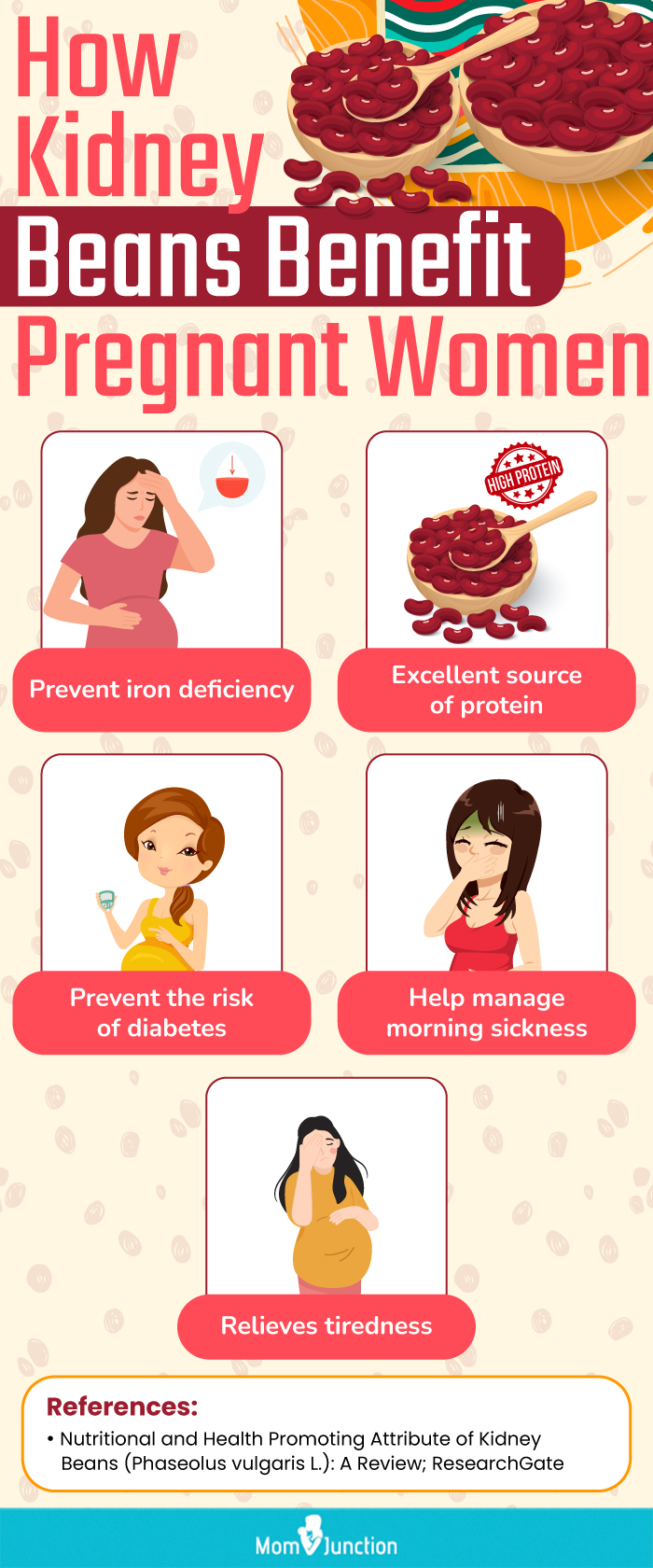
Illustration: Momjunction Design Team
Get high-quality PDF version by clicking below.
Download Infographic
Key Pointers
- Kidney beans are rich in iron, amino acids, and antioxidants.
- Eating kidney beans regularly can increase the fetus’s red blood cells and prevent iron deficiency in the mother.
- Kidney beans help regulate cholesterol levels and combat morning sickness in pregnant women.
- They contain copper that improves the elasticity of muscles and ligaments.
- Consuming excessive amounts of kidney beans may lead to kidney stones.
- It is advised to wash kidney beans and avoid canned beans while pregnant due to their high sodium levels.
References:
- What are the benefits of beans?
https://chhs.source.colostate.edu/what-are-the-benefits-of-beans/ - Prenatal Nutrition.
https://www.med.umich.edu/pfans/_pdf/hetm-2017/0417-prenatalnutrition.pdf - Beans, kidney, red, mature seeds, cooked, boiled, without salt FDC ID: 175194
https://fdc.nal.usda.gov/fdc-app.html#/food-details/175194/nutrients - Anemia and Pregnancy.
https://www.ucsfhealth.org/education/anemia-and-pregnancy - Iron.
https://www.hsph.harvard.edu/nutritionsource/iron/ - Iron Nutriture of the Fetus, Neonate, Infant, and Child.
https://www.karger.com/Article/FullText/481447 - What Are Proteins and What Is Their Function in the Body?
https://www.eufic.org/en/whats-in-food/article/what-are-proteins-and-what-is-their-function-in-the-body - What superfoods are good for diabetes?
https://www.diabetes.org/healthy-living/recipes-nutrition/eating-well/diabetes-superstar-foods - Facts of Fiber.
http://www.dining.ucla.edu/housing_site/dining/SNAC_pdf/FactsOfFiber.pdf - Molybdenum.
https://ods.od.nih.gov/factsheets/Molybdenum-HealthProfessional/ - Copper.
https://ods.od.nih.gov/factsheets/Copper-HealthProfessional/ - Magnesium.
https://ods.od.nih.gov/factsheets/Magnesium-HealthProfessional/ - All about gout and diet.
http://www.ukgoutsociety.org/docs/goutsociety-allaboutgoutanddiet-0113.pdf - Killer Kidney Beans?
https://extension.illinois.edu/blogs/simply-nutritious-quick-and-delicious/2015-01-30-killer-kidney-beans#:~:text=Phytohaemagglutinin%20(PHA)%20is%20a%20natural - M.Mariscal-Arcas et al. (2009); Dietary exposure assessment of pregnant women to bisphenol-A from cans and microwave containers in Southern Spain.
https://www.sciencedirect.com/science/article/abs/pii/S0278691508007163 - Pass on the Salt, Please.
https://www.bu.edu/scnc/2013/03/08/pass-on-the-salt-please/ - Dietary Guidelines for Americans, 2020-2025.
https://medicine.uams.edu/familymedicine/wp-content/uploads/sites/7/2021/05/USDA-Nutrition-Guide-for-Breastfeeding.pdf



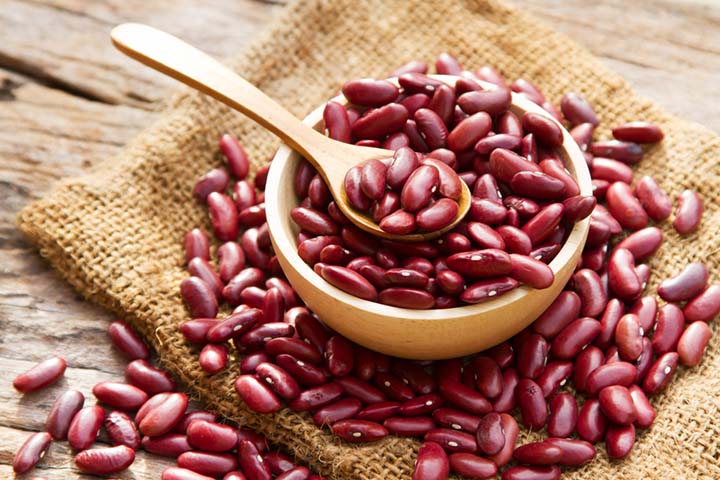
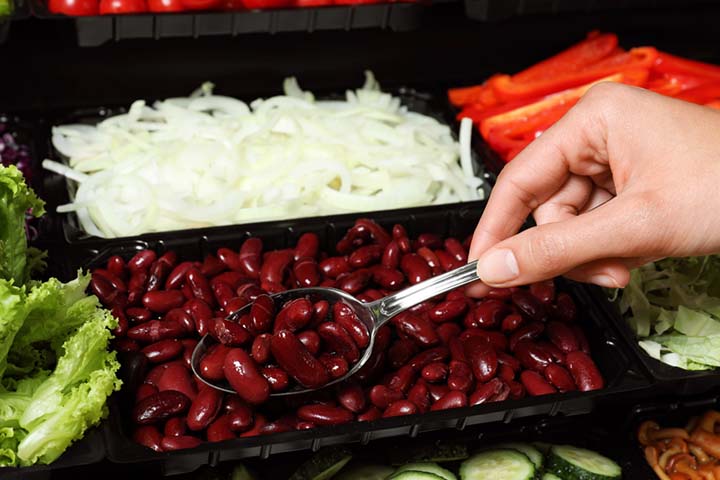
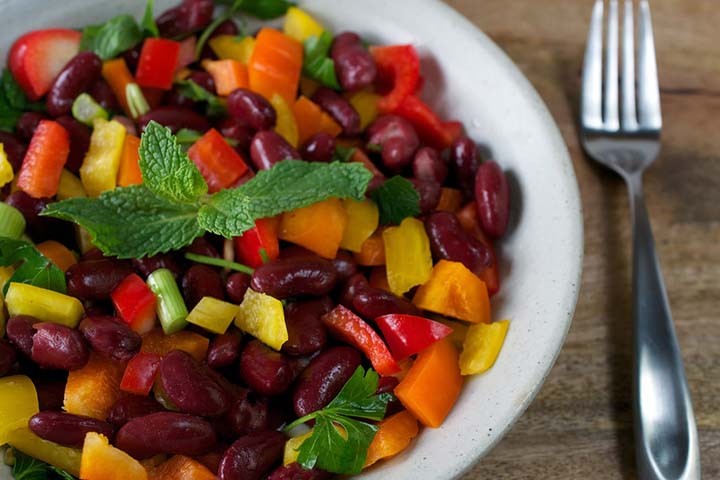
 Did you know?
Did you know?
